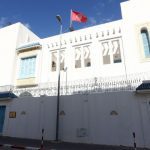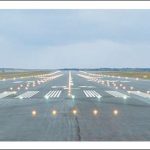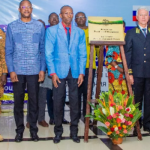The Libyan Stock Exchange began trading at a facility in Tripoli after being closed for more than nine years due to the political and security situation.
The prime minister of the Government of National Unity, Abdulhamid al-Dbeibah, and the market’s chairman of the board of directors, Bashir Mohamed Ashour, rang the bell to signal the return of trading, along with other dignitaries.
The stock exchange also has a trading hall in Benghazi, Libya’s second largest city, where trade is likely to restart next week, according to a source.
According to Dbeibah, the bourse is “one of the means to improve the Libyan economy.”
“The importance of the stock market is embodied in doubling the gross domestic product and helping to close the budget deficit, which reduces the burden on the state’s general budget,” he said.
Out of 10 companies, eight were listed on Monday’s trading schedule, but only three of them traded, Lamin Haman the market’s media adviser said.
The market was launched in 2006, after the fall of the former regime of Mummar Gaddafi in the NATO-backed uprising in 2011, it suspended trading for more than 12 months.
During a civil war between armed factions vying for power in 2014, trading was again suspended.
In the same year, the major oil producer in North Africa divided between warring eastern and western factions.














